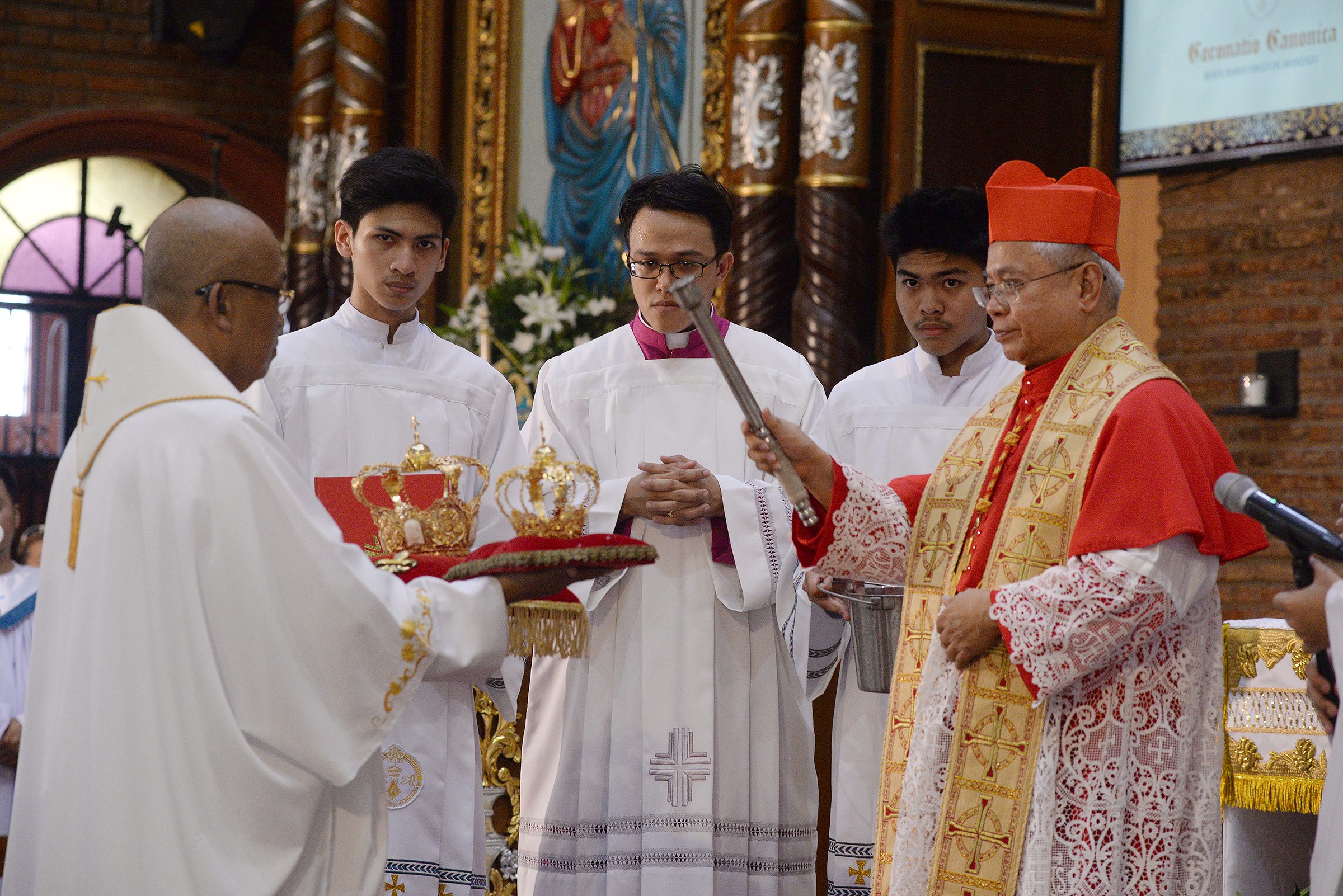SUMMARY
This is AI generated summarization, which may have errors. For context, always refer to the full article.

MANILA, Philippines – Cotabato Archbishop Orlando Cardinal Quevedo urged believers of different religions to engage in interreligious dialogue (IRD) in the face of terrorism, especially in the southern Philippines.
“With the tragic reality of terrorism, IRD has become more imperative and indispensable,” Quevedo wrote on Wednesday, June 14, in response to questions from the Polish OMI magazine.
“It is the task of religious leaders to address the root causes of terrorism, especially false beliefs of their respective constituents about others, the mutual biases, and prejudices that are deep-seated and sometimes explode into the open when social disputes, crimes, and violence occur,” Quevedo said.
Quevedo, the first cardinal from Mindanao, made these remarks as clashes rage between government troops and local terrorists in Marawi, a city in the southern Philippine island group of Mindanao.
In his responses to the Polish OMI magazine, Quevedo explained that the task of correcting erroneous beliefs and reducing biases should begin at home, from early childhood. He also said this should be done everywhere, from markets to schools.
Quevedo added, “While it may not be possible to dialogue with terrorist themselves, their religious scholars could convince them of their erroneous Qur’anic interpretation.”
Still, he said political action can also dissuade “terrorists and disillusioned youth” from engaging in extremism. These forms of political action, he said, include “the early government approval” of the draft of the Bangsamoro Basic Law (BBL), which aims to create a more powerful Muslim region. (READ: Commission finalizes Bangsamoro Basic Law draft)
Harmony despite biases
Quevedo pointed out, however, that Christians and Muslims in the Philippines have lived together peacefully for years.
“For the Philippines, then, a clash of civilizations is not applicable to explain terrorism. Neither is a hatred for Christians the reason for terrorism if considered apart from the political history of conquest,” he said.
“For in general, despite deep-seated biases and prejudices, ordinary Chistians and Muslims in the Philippines live together in relative harmony and peace,” Quevedo continued.
The cardinal then cited stories of how Muslim employers “helped their Christian workers to safety, while in Iligan, Christians assist Muslim refugees who fled from Marawi,” as the terrorist Maute Group ravaged Marawi City. (READ: Trapped in Marawi, Muslims shield Christians from terrorists)
Quevedo earlier denounced terrorism as a “demonic ideology” destroying friendships between Christians and Muslims.
Like Quevedo, British Ambassador to the Philippines Asif Ahmad earlier said Christians and Muslims in the country “have lived together” closely for years.
“There is no interfaith conflict,” Ahmad said. “There is a conflict between people who are religious and spiritual, and with people of no faith and no humanity whatsoever.” – Rappler.com
Add a comment
How does this make you feel?
There are no comments yet. Add your comment to start the conversation.